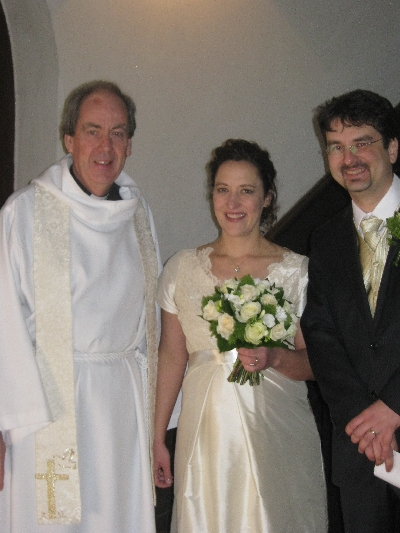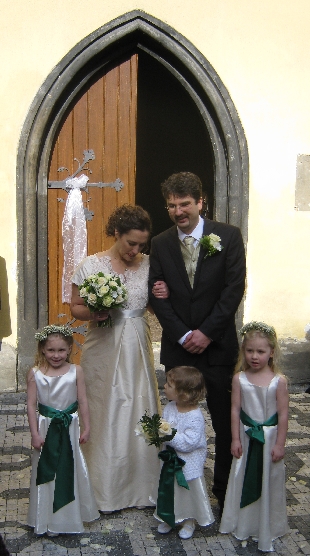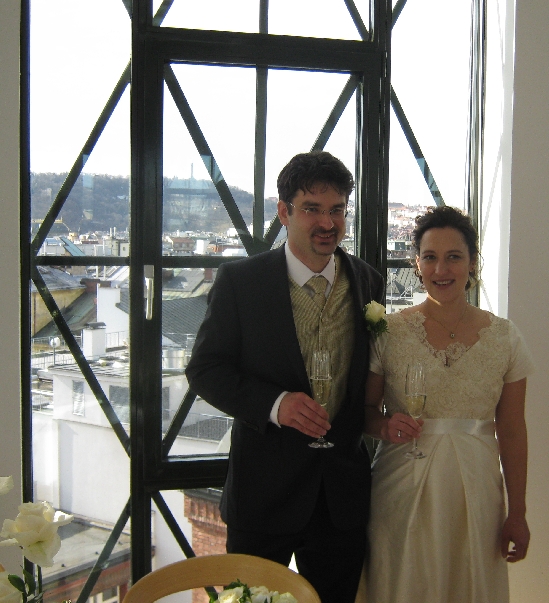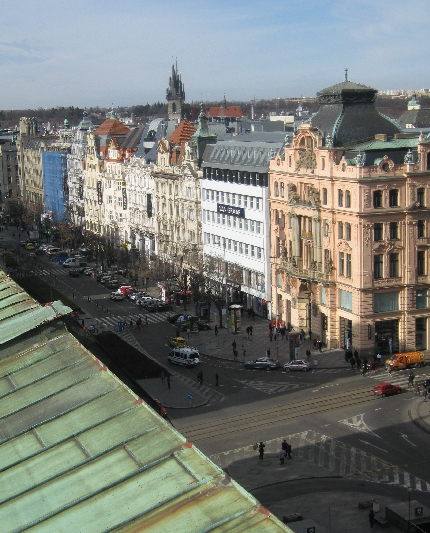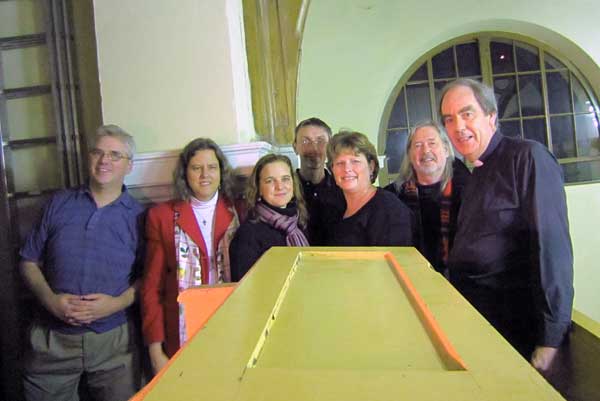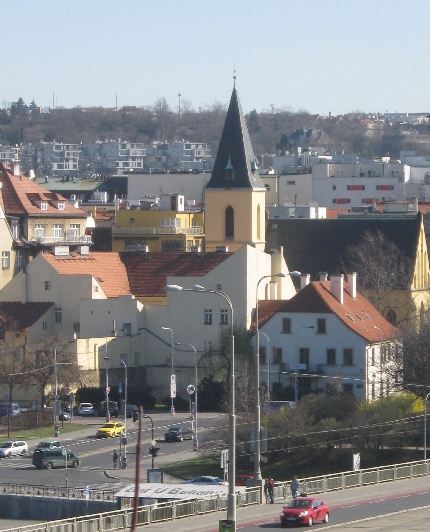
From time-to-time I get emails, or comments here on my blog, each of which make wholly inaccurate assumptions about the Prague Anglican congregation that I serve as Chaplain. So this post is intended to explode a few myths and instead, try to paint a more accurate picture.
We are the Brits abroad – Wrong!
Many people are surprised to discover that only about a third of our regular congregation are citizens of the United Kingdom of Great Britain and Northern Ireland, to give my home country its correct full name. The other two-thirds come from a variety of English-speaking nations from around the world. Or, they are second or even third language English-speakers, happy to worship using the medium of English. Every Sunday, you can almost guarantee that there will be double-figure nationalities making up the congregation.
We are funded by the UK government – Wrong!
Yes, we are part of the forty-fourth diocese of the Church of England, the Diocese of Gibraltar in Europe. And yes, the Church of England is the ‘Established Church’ in England, (but not in Wales, Scotland or Northern Ireland). But despite being ‘established’, we receive no money whatsoever from the British government to pay the clergy or meet running costs. Contrary to popular opinion, the Church of England is NOT the spiritual arm of the Department of Social Security, nor here in the Czech Republic, the spiritual arm of the Foreign & Commonwealth Office!
We are a bunch of wealthy expats – Wrong!
Many people assume that my congregation consists of wealthy business people and/or diplomats. It doesn’t! Back in the 1990s, and even in the very early years of the new millennium, there were English-speaking expats living in Prague, who were here to set up and run the newly established Czech branch of major international companies. And several of these did worship at St. Clement’s and were generous financial supporters. But now, these jobs are held by well educated Czechs who will be able to speak English, but will not be looking for an English-speaking Church in which to worship.
Instead, the congregation currently consists of teachers of English, teachers in the various International Schools, students (numerous University courses here are taught through the medium of English), the English-speaking half of a Czech-English-speaker marriage, etc. Very few congregational members come anywhere near the category of ‘wealthy’.
We are all Anglicans – Wrong!
A survey undertaken a couple of years ago, revealed that only about half of the congregation are Anglican/Episcopalian by background. All the rest come from a wide variety of other Christian traditions. Fortunately, the Church of England allows those members of other Christian Churches who ‘habitually worship’ with us for at least six months, to join the Church Electoral Roll and fully participate in our congregational life. We use Anglican liturgy in our worship, we follow the laws of the Church of England which govern the way our congregation is administered, but we are far from all being Anglicans.
Amusing assumptions
A couple of assumptions that I’ve read or heard could probably best be described as ‘delusions of grandeur’ and each brought a smile to my face. One was a Czech lady, a member of the Old Catholic Church in the Czech Republic, who thought I was the Anglican Bishop of this country!
The other was a female Canadian lawyer who worshipped with us whilst visiting Prague at Easter, two years ago. A couple of weeks later, I received a letter from her, saying how much she had appreciated the service and enclosing 300 Kc in cash. Her request was that I ‘ask my assistant to send her a couple of postcards of the Church as she had forgotten to purchase them when she was there’. I did smile at the assumption that I have a full-time paid assistant!
Consequences and complications
Having a congregation with such a mix of nationalities and Christian traditions is a great joy. But it also raises a number of interesting issues, especially in two important aspects of our worship – liturgy and the hymns we sing.
The liturgy of the Church of England in various places asks us to pray for ‘Elizabeth our Queen’ and on occasions, for ‘the High Court of Parliament’. For many in the Prague congregation, Her Majesty Queen Elizabeth II is not their Queen! Fortunately, by producing our own Orders of Service, we can omit the inappropriate words. The formula those who lead intercessions often use is to pray for ‘….the President and government of the Czech Republic and for the leaders of all the nations represented here today’.
I had long been aware that in England, Anglicans and Free Church people often sing the same hymn but to different tunes. For example, Charles Wesley’s great hymn ‘Love divine, all loves excelling’, used normally to be sung by Anglicans to John Stainer’s tune called ‘Love divine’, whilst Methodists and others would sing it to the Welsh tune ‘Blaenwern’. In more recent times, many Anglicans have taken to using ’Blaenwern’ thus lessening the issue.
But what I have discovered since being in Prague, is what might best be described as the ‘transatlantic divide’. Americans and Brits know many of the same hymns but sing them to totally different tunes! We use a British Hymnal with a very wide range of hymns and more modern worship songs. But they frequently are not set to the tunes that Americans are familiar with.
One further practical problem also arises. What other important days beyond those of the Christian calendar, do you celebrate? For British and Irish people, last Sunday, the Fourth Sunday in Lent, was Mothering Sunday or Mother’s Day. But for Americans, Australians and many other nationalities, Mother’s Day, (or specifically for Americans, ‘Mom’s Day’), is the second Sunday in May.
Life might be simpler if the Prague Anglican congregation who I have privilege to minister to, would be monochrome. But I’m glad it isn’t, as it is much more fun to work and worship with such a diverse and fascinating group of people, even allowing for all the issues that arise.

